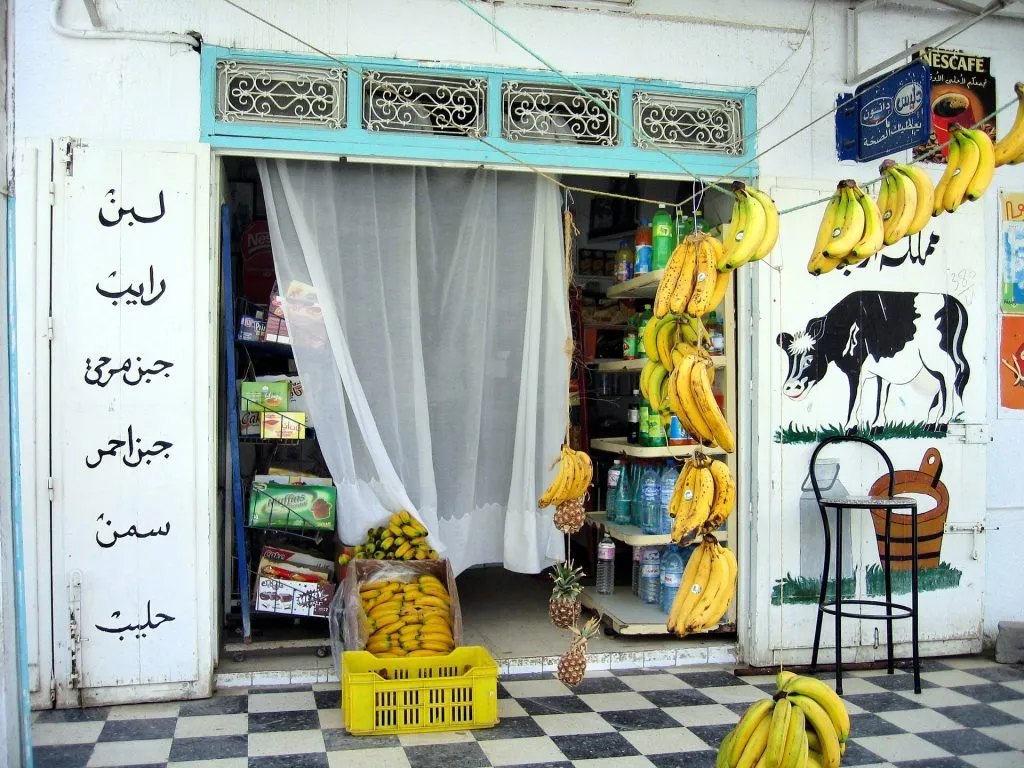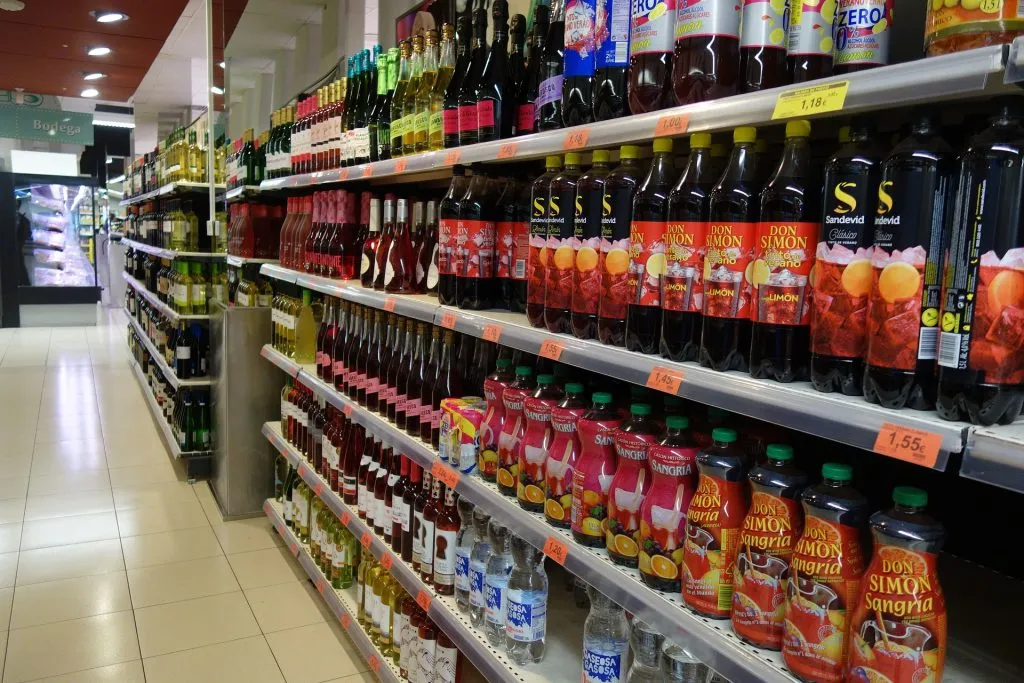For both financial and practical reasons you might find yourself wanting to go grocery shopping in a foreign country. In most major expat regions there will be a very obvious difference between a local grocery store and one catering to foreigners.
A foreigner focused grocery store will have many imported products and translated signs, but definitely higher prices. Local grocery stores are more likely to sell things native to the region and be entirely in the local language, but prices will fit local salary budgets.
Grocery stores fall on a continuum between foreigner focused and local intended. You may find yourself shopping at both types of stores or gravitating towards one end of the spectrum or the other.

Understanding Currency Conversion
The first thing you want to get a grasp on is how your home currency relates to the currency of your new country. Download my Must Have Apps for Expats guide below so you have accurate conversion rates anywhere in the world.
Beyond just knowing that 1000 Dominican Pesos equals 8 U.S. dollars, you will start understanding what items generally cost. A vendor might charge a local the equivalent of 50 U.S. cents for a bundle of bananas and ask you for 5 dollars for that same bundle. Acquaint yourself with local prices by checking the local focused grocery stores.
Some prices will likely surprise you because they are so cheap, while other prices will shock you for being strangely expensive. Price is determined because of a variety of factors including supply and demand, import cost, and competition.
Finding Local Alternatives
It is tempting to seek out brand names you are familiar with at the foreigner friendly grocery store. I strongly urge you to get out of the mindset of finding your home country brands.
One of the many benefits of grocery shopping in a foreign country is the ability to expand your flavor palette. Try making your favorite recipes with locally made spices and sauces instead of pre-packaged imported products you recognize.
Anytime you’re feeling a craving for a particular kind of flavor there is likely to be a local substitute.
Getting creative with what is available is an essential skill of a nomad or expat. One day I was looking for graham crackers to make s’mores, but instead I found a graham cracker pie crust and made a s’mores pie instead.
Not a One Stop Shop
I can’t speak for all countries, but for me grocery shopping in a foreign country is an all day event. I have yet to find a grocery store in a foreign country that has all the products I am looking for under one roof.
Ask any local and they will probably tell you to go to one place for meat, a different spot for fruit, a separate store for cleaning products, another shop for toiletries, and yet somewhere else for baked goods. Grocery shopping in a foreign country takes a lot more pre-planning and strategy than what I am accustomed to in the United States.
You will encounter a lot more items being sold out than I ever noticed in America. Be willing to change your dinner menu accordingly when you discover they are out of the necessary cheese or meat for your meal. The key to grocery shopping in a foreign country is flexibility.

Shopping More Often
As you get comfortable in your new home there will become new layers to your grocery shopping strategy. For example, you might find out that the fruit vendor gets new inventory on Tuesdays, making Tuesdays your new fruit shopping day. Likewise, you find out the butcher gets new stock on Monday and Thursdays. You get the drift. Being savvy with timing can increase the odds you get the items you’re looking for.
Another reason for shopping more often in foreign countries is the tendency towards less preservatives in their food. You will probably notice that much of the food you buy in a foreign grocery store is on the brink of expiration. You can’t stock up on 2 weeks worth of fruit or dairy even if you wanted to because it would go bad before you consumed it all.
Additionally, depending on where you are planting roots, lack of storage or reliable electricity can be factors in how much food you keep in your home. In Tokyo there is much less storage space for bulk grocery items. Whereas in Dominican Republic the frequent blackouts made us hesitant to keep freezer goods.
One last reason we shop more frequently in Tokyo is our lack of transportation. The grocery store is a 15 minute walk and we have no vehicle. Every single grocery item that we purchase has to come home in our bike basket or on our shoulder. Shopping without a car to bring home groceries creates lots of little behavior changes including shopping more frequently.
Grocery Shopping in a Foreign Country
No matter where you have decided to live there will be incredible new experiences and also various annoying aspects. Embrace the new food assortment as much as you can.
I will say that there are still American food items I miss. But, we lived in Dominican Republic for a year and there are items I grew to love and miss also! Now we live in Tokyo, and when we leave here, there will be items I miss as well.
Expats are generally very helpful to new foreigners. If you ever have questions about where to find something or how to use a particular ingredient, find a local friend to guide you.



Leave a comment